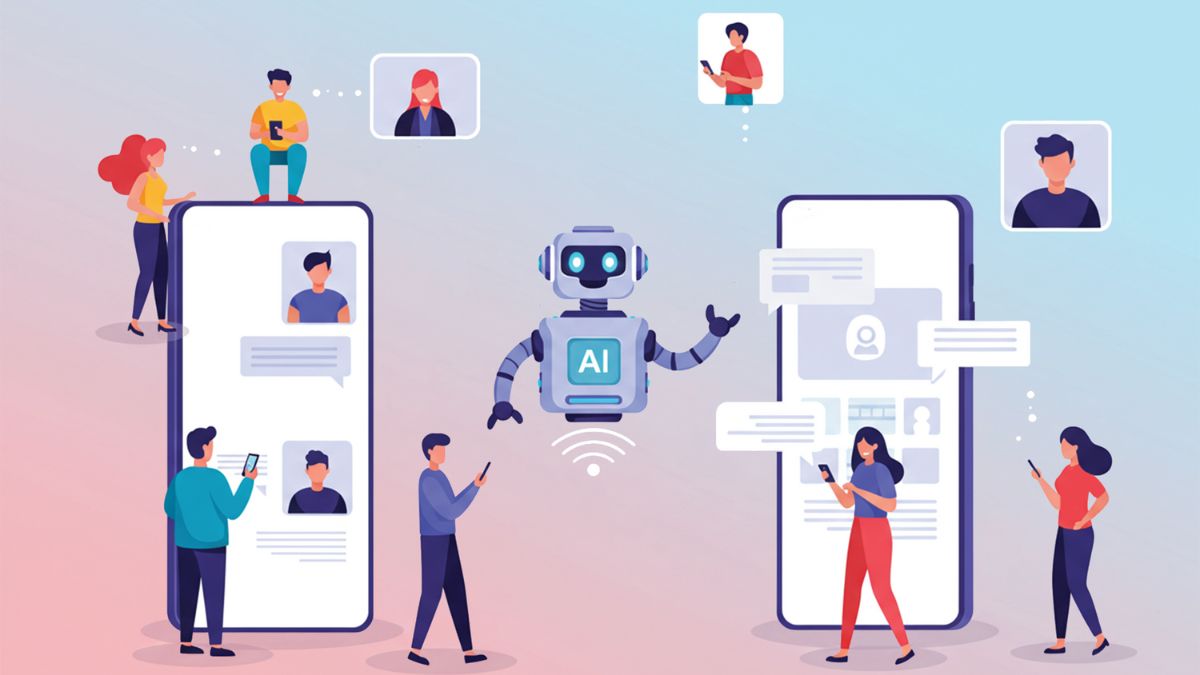
Artificial Intelligence (AI) is an increasingly necessary tool in the content marketing strategies of brands. Thanks to its ability to automate processes, personalize experiences, and analyze large volumes of data, brands are integrating AI into their content strategies at an accelerated pace. The Content Marketing Trend Study 2025 by Statista provides a clear view of how companies are leveraging this technology to transform the way they create, distribute, and optimize content.
READ ALSO. How are small businesses using generative AI?
The report shows that 92% of B2B marketers have already incorporated artificial intelligence as a regular part of their content marketing workflow. This represents a significant increase compared to previous years and reflects how AI has evolved from being an experimental tool to an indispensable strategic component.
Additionally, 68% of professionals plan to expand their use of AI during 2025, indicating that we are only seeing the beginning of a much deeper transformation.
ALSO READ: Why is trust the strategic pillar of content marketing in 2025?
Uses of Artificial Intelligence in Content Marketing
AI is redefining content marketing on multiple levels. According to the study, the most common uses in the B2B environment are:
| AI Application | Adoption Rate |
|---|---|
| Automation of repetitive tasks | 66% |
| Content optimization | 51% |
| Content creation (text, image, video) | 47% |
| User experience personalization | 47% |
| Data analysis and performance evaluation | 43% |
| Customer service through chatbots | 64% |
Task Automation
One of the greatest benefits of AI is its ability to automate repetitive tasks that traditionally consume a lot of time. From scheduling social media posts to generating performance reports, automation allows teams to focus on higher-value strategic tasks.
Content Optimization
AI also plays a key role in content optimization, helping to:
- Analyze which formats and messages work best.
- Adapt copy in real time.
- Improve SEO by identifying relevant keywords and optimizing metadata.
Content Creation
AI-driven content generation is another booming application. Text and image generation tools such as ChatGPT, DALL-E, or Canva allow the creation of everything from articles to personalized images at high speed.
Among the most used AI tools by marketing teams are:
- ChatGPT/Bing Chatbot: 61%.
- Canva: 30%.
- Gemini: 32%.
- Ideogram: 12%.
These tools not only increase productivity but also open up new creative possibilities.
Experience Personalization
The ability to personalize content at scale is one of AI’s most powerful applications. By analyzing behavioral data, preferences, and browsing history, brands can deliver hyper-personalized content that improves engagement and conversion.
Data Analysis
AI also enhances data analysis, enabling:
- Detection of behavior patterns in content consumption.
- Real-time campaign performance evaluation.
- Quick strategy adjustments based on data.
What Are the Benefits for Brands Integrating AI in Their Content Marketing?
The use of artificial intelligence offers multiple benefits, including:
- Process automation (66%): Frees up resources for more strategic tasks.
- Faster data analysis (62%): Improves agility in decision-making.
- Enhanced personalization (62%): Elevates user experience and increases audience loyalty.
Moreover, brands that adopt AI can scale their marketing operations more efficiently, reaching new levels of precision and speed.
What Are the Challenges Companies Face When Using AI?
Despite its benefits, integrating AI is not without challenges. According to the Statista study, the main barriers are:
| Challenge | Percentage of Affected Companies |
|---|---|
| Data protection and security | 55% |
| Integration with existing processes | 51% |
| Implementation costs | 51% |
| Quality of generated content | 43% |
Data protection remains the main issue, especially in a context where privacy and regulatory compliance are increasingly important.
In addition, seamlessly integrating AI into existing processes and ensuring the quality of generated content are critical challenges that brands must carefully manage.
In Which Areas Are Companies Planning to Invest More?
The report indicates that companies plan to strengthen their AI investments in areas such as:
- Content creation and optimization (63%).
- Customer experience personalization (53%).
- SEO and data analysis (53% and 50% respectively).
This evolution marks a shift from simple content generation to smart, data-driven optimization, where every piece of content is designed to maximize its impact.
AI and the Future of Content Marketing
Artificial intelligence is no longer just a “bonus” but is becoming a central engine of content marketing strategies. Companies that successfully integrate AI strategically into their processes will not only improve operational efficiency but will also:
- Achieve higher engagement rates.
- Better personalize user experiences.
- Adapt campaigns in real time based on insights.
⇒ SUBSCRIBE TO OUR CONTENT ON GOOGLE NEWS









